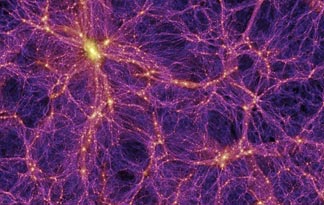As a kid, I was fascinated by the idea of space travel. Sure, the science fiction films I saw and comic books I read revealed a universe filled with monsters and just plain evil beings. Certainly, of all the places to visit, the planet Mongo wasn’t a great place to visit, what with Ming the Merciless in charge. In such a universe, one had to rely on the protective companionship of a Flash Gordon or the safety of rockets that seem to have sparklers for drive systems. *
I no longer want to travel through outer space. It isn’t safe. It’s foolishly risky, in my opinion. Yes, it’s nice to know what the surface of Mars looks like and is composed of. Those HD images taken by the rovers give me a good idea. Yes, I’m a bit curious whether or not Mars houses or once housed life to see whether the Allan Hills 84001 meteorite’s fossil is actually a fossil bacterium. And, yes, I am curious whether or not Titan, Europa, or some other distant Solar System body has “figured out” what early Earth seems to have done 3.5 or more billion years ago, that organic molecules can be encapsulated into a self-replicating organism. But, as I wrote above, I don’t want to be the explorer who finds extraterrestrial life. It’s just too, too dangerous.
According to a study by Willian A. da Silveira and others (2020), mitochondria become “dysfunctional” in microgravity and under exposure to radiation. ** Dysfunctional mitochondria! Sometimes I’m dragging with the mitochondria I have. I certainly wouldn’t want less effective cell energizers. Sure, I know that Christina Koch, Peggy Whitson, and Anne McClain all seem to be doing well after spending two thirds to almost a full year in space, but their long missions don’t really compare to traveling to, say, Mars. The trip to Mars takes roughly the same amount of time as those astronauts spent in total in space. Then there’s the return trip. Another two-thirds of a year under ideal conditions. What? Tell me that people are going all the way to Mars to not land and walk around for a bit? That’s more time exposed to lower gravity and excess radiation. No thanks, Elon.
I prefer the virtual space travel of science fiction. True, I have to suspend my disbelief when I see spacecraft whizzing around galaxies at the speed of light or faster and people communicating over vast distances as though the laws of physics don’t apply, as though messaging is as near-instantaneous as it is from cell phone to cell phone on Earth. Heck, even a message from Neil Armstrong took over a second to reach Earth, and the moon is a pebble’s throw from Earth by comparison with the more than 30 million miles to Mars. But communicating between two stars? And then there’s that twin paradox. One leaves on a light-speed flight to planet Mongo, some light years away, and then returns only slightly aged to find the other twin not only aged more, but actually died of old age. Ah! Fiction. In Star Wars, Star Trek, and every other space story, people get to travel great distances and then return to find the people left behind aged at the same rate as the travelers, travelers unaffected by cosmic rays.
But, I suppose, Musk will have his Martian crew from many who will apply without realizing the danger such a trip will impose upon their mitochondria. And once there on that distant, barren planet, what will they discover? We already have ample evidence that Mars had abundant water. There are abandoned river channels, sedimentary layers, imbricate patterns in stones on the surface, and Curiosity’s discovery of a “megaflood.” Astronauts won’t find Mingo the Merciless, but maybe a bacterium that might pose a new threat, another pandemic if brought back to Earth, that is, if the astronauts survive the flight to Mars, the stay on Mars, and the return flight to Earth. And what will they take to Mars? Earth bacteria that might in a couple of billion years produce a terra-forming atmosphere on a planet without a protective magnetic field to ward off the Solar Wind while allowing in sterilizing UV light?
This is a great planet. Aren’t you glad you chose this one? I know I am. I like it so much, I plan to stay here.
*For Mingo, see https://www.youtube.com/watch?v=YVIp0m86nZ0 . For the sparkler-driven rocket, see https://www.youtube.com/watch?v=US8FpRUBKb4
**Summary at http://www.sci-news.com/medicine/spaceflight-mitochondrial-function-09092.html Study: Da Silveira, Willian A., Hossein Fazelinia, Sara Brin Frosenthal, Christopher E. Mason, Sylvain V. Costes, and Afshin Beheshti. Comprehensive Multi-omics analysis Reveals Mitochrondrial Stress as a Central Biological Hub for Spaceflight Impact. Cell. Vol. 183, issue 5, pp. 1185-1201. 25 Nov 2020. Online at https://www.cell.com/cell/fulltext/S0092-8674(20)31461-6?_returnURL=https%3A%2F%2Flinkinghub.elsevier.com%2Fretrieve%2Fpii%2FS0092867420314616%3Fshowall%3Dtrue Accessed November 27, 2020.


 RSS Feed
RSS Feed